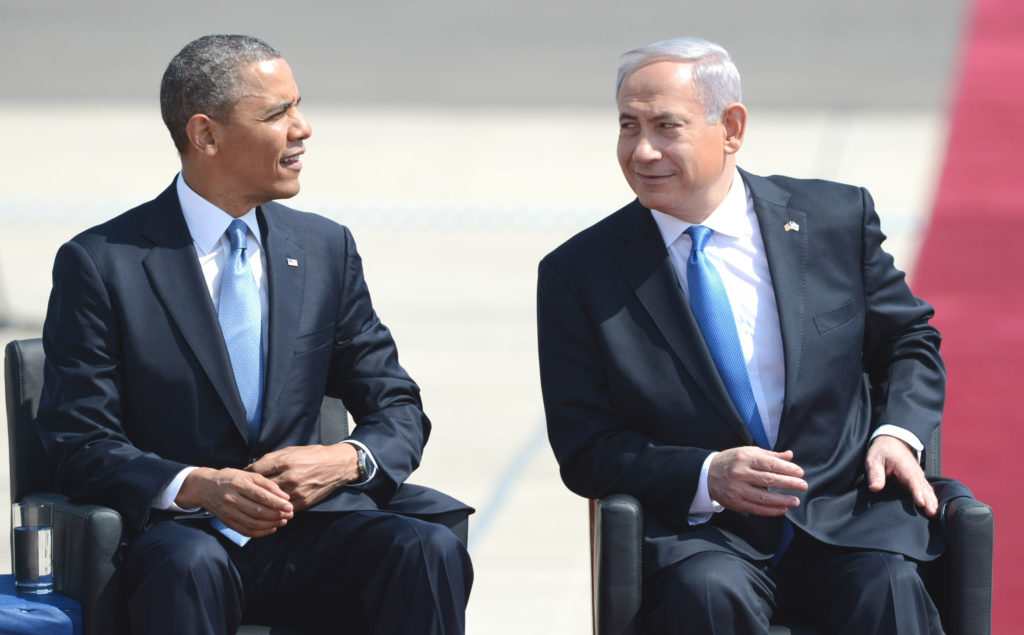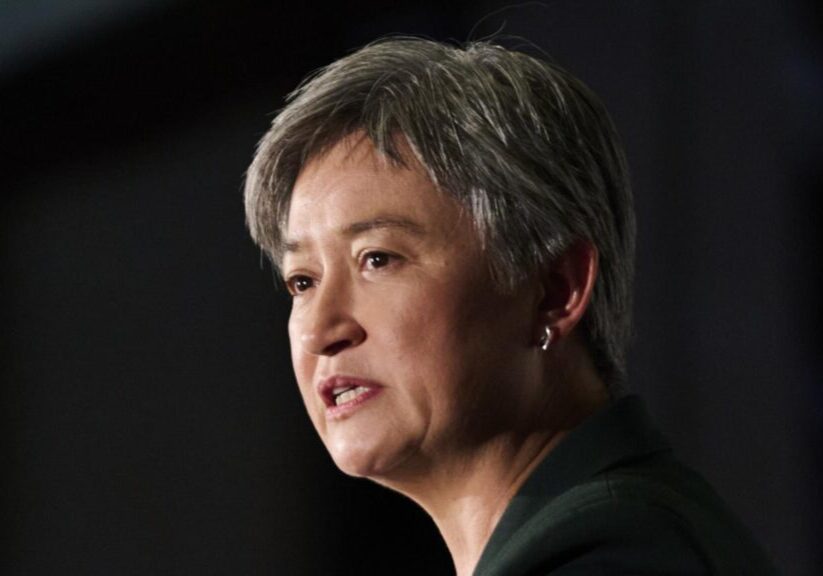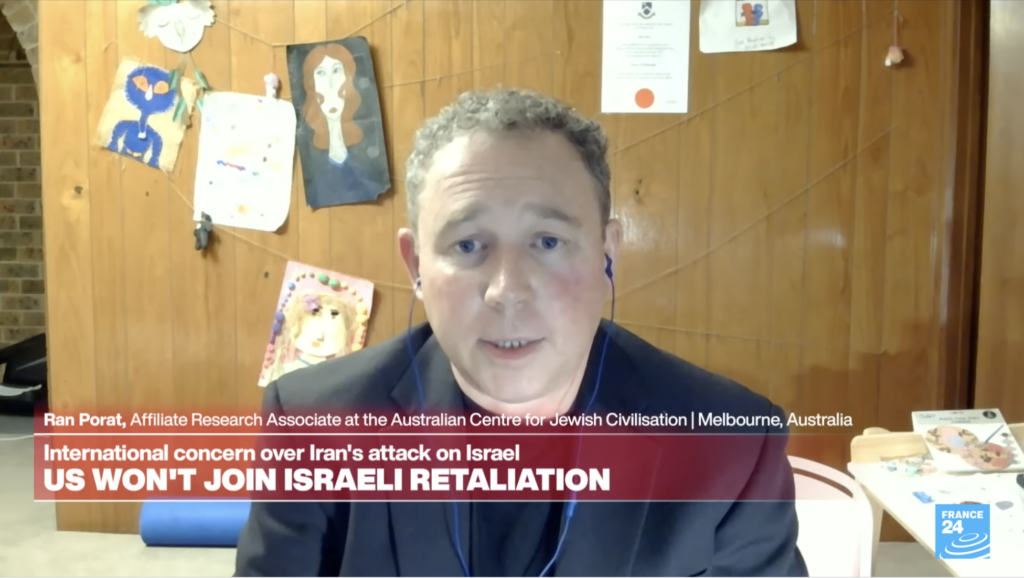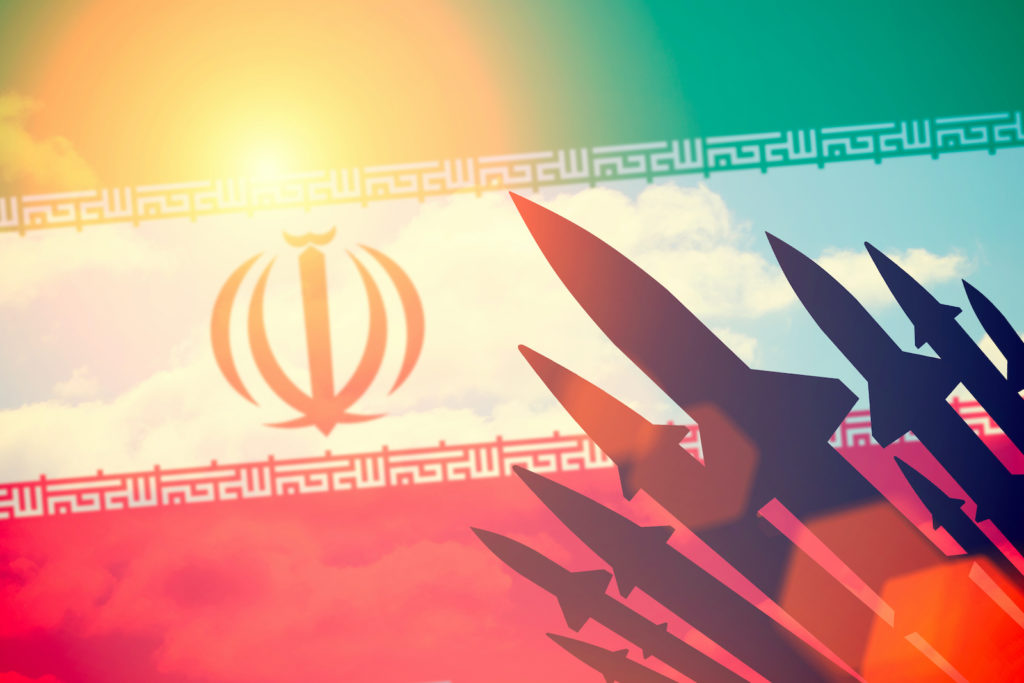IN THE MEDIA
Obama will have to drive parties hard to achieve progress
Mar 21, 2013 | Colin Rubenstein

Colin Rubenstein
Canberra Times – March 21, 2013
When US President Barack Obama arrives for his inaugural visit to Israel on Wednesday, he will be met by Israeli Prime Minister Benjamin Netanyahu’s newly formed government – a broad coalition of centre-right, right and centre-left parties bound together by common interests following Israel’s election in January.
Obama will find many fresh faces in this government – and also some new opportunities to push forward towards peace with all of Israel’s neighbours, especially the Palestinians. He will also find a government likely very concerned about pressing regional issues – especially the Iranian nuclear threat and the Syrian civil war – but also one interested in achieving the maximum policy co-ordination possible with Washington on these issues.
The drive to curb Iran’s dangerous and illegal nuclear weapons program will certainly top Obama’s agenda in Jerusalem. Obama, one of the world’s most committed voices against nuclear proliferation – particularly in the case of Iran – and Netanyahu, who has repeatedly warned about the closing window of opportunity to act before Iran reaches nuclear weapons capability, will have much strategy to discuss.
Besides Iran, the leaders are set to strategise on policies regarding Syria. If newly appointed US Secretary of State John Kerry’s recent strong statements of support for some Syrian rebels are any indication, Washington’s position in the face of the ongoing humanitarian crisis presented by the civil war may well be in flux.
Of particular concern to Obama and Netanyahu will be the fate of embattled Syrian President Bashar Assad’s chemical weapons and uranium stockpiles.
The White House has played down suggestions the President will use the visit to advance a specific new Israeli-Palestinian peace proposal. To be certain, Obama will want to explore all options to jump-start negotiations. But this trip will likely be geared towards bolstering and fine-tuning US foreign policy in a changing Middle East and rebooting a sometimes awkward past relationship between Obama and Netanyahu.
His over-ambitious first-term goals behind him, Obama almost certainly now recognises that there is little hope for a comprehensive two-state peace agreement in the short term. But that does not mean that there is no hope for progress towards that goal. Contrary to much ill-informed comment, this is not because of intransigence or lack of good will on the Israeli side. In fact, Israel offered a number of overtures and confidence-building measures to the Palestinians in recent years.
Examples include removing over 400 checkpoints and roadblocks throughout the West Bank – security safeguards in place since the second intifada – to improve Palestinian freedom of movement. Last July, Israel sought a $US100 million dollar bridging loan from the International Monetary Fund on behalf of the cash-strapped Palestinian Authority, which as a non-state entity lacks access to the IMF on its own. The number of Palestinian prisoners in Israel declined by 43 per cent between the Netanyahu government’s election in February 2009 and December 2012. Under Netanyahu, Gaza has seen an increase in imports and exports of consumer goods and an easing of a blockade of the Hamas-held territory.
Furthermore, contrary to accusations by PA officials that the population of Israel’s West Bank settlements has increased greatly under Netanyahu, statistics show that the population growth in settlements actually slowed considerably compared to the rate of growth under the Olmert government that preceded him.
Yet the Palestinian side has not only continued to reject renewed negotiations, but instead responded with hostile unilateral acts such as its bid to upgrade its status at the United Nations to that of a non-member state – a blatant violation of its signed agreements with Israel.
Today, Washington realises that political realities on the Palestinian side, including the Fatah-Hamas divide, an unwillingness to negotiate without preconditions, and the current wave of incitement, violent protests and prisoner uprisings being orchestrated by the Palestinian leadership, negatively affect the chances for a comprehensive peace agreement in the short term.
The President further understands that he can ill afford to squander precious resources by repeating past mistakes, and cannot forget that his demand in 2009 for a construction freeze in Israel’s West Bank settlements – a demand met in good faith by the Netanyahu government over an unprecedented 10-month period – led to nothing but an increase in the preconditions set by the Palestinians for the resumption of direct negotiations.
That being said, the new more centrist Israeli government does offer an opportunity for something of a ”reset”. If Obama is to succeed, he will need to push hard for negotiations to resume, but should strive to refocus them on agreements on interim arrangements, including especially the ”interim Palestinian state with provisional borders” that is called for in the 2003 Roadmap for Peace approved by all players.
By postponing the hardest issues – refugees, Jerusalem, a final end to the conflict, the ultimate fate of most settlements – this is one obvious path forward that does not require breakthroughs that now look impossible. And there is every reason to believe that Netanyahu and his new government would be on board for such an effort, while Mahmoud Abbas, the Palestinian President and veteran negotiator with Israel, actually has little to lose and the possibility of a significant legacy to leave to his people if he agrees. Hopefully, the newly formed Netanyahu government and the second Obama administration will be seeking realistic, incremental progress via renewed Israeli-Palestinian negotiations, as well as sound and concerted policies regarding Iran and Syria.
>> Dr Rubenstein is executive director of the Australia/Israel & Jewish Affairs Council. Previously, he taught Middle East politics at Monash University.
This story was found at: http://www.canberratimes.com.au/comment/obama-will-have-to-drive-israel-hard-to-achieve-progress-20130320-2gg3n.html
Tags: Israel











